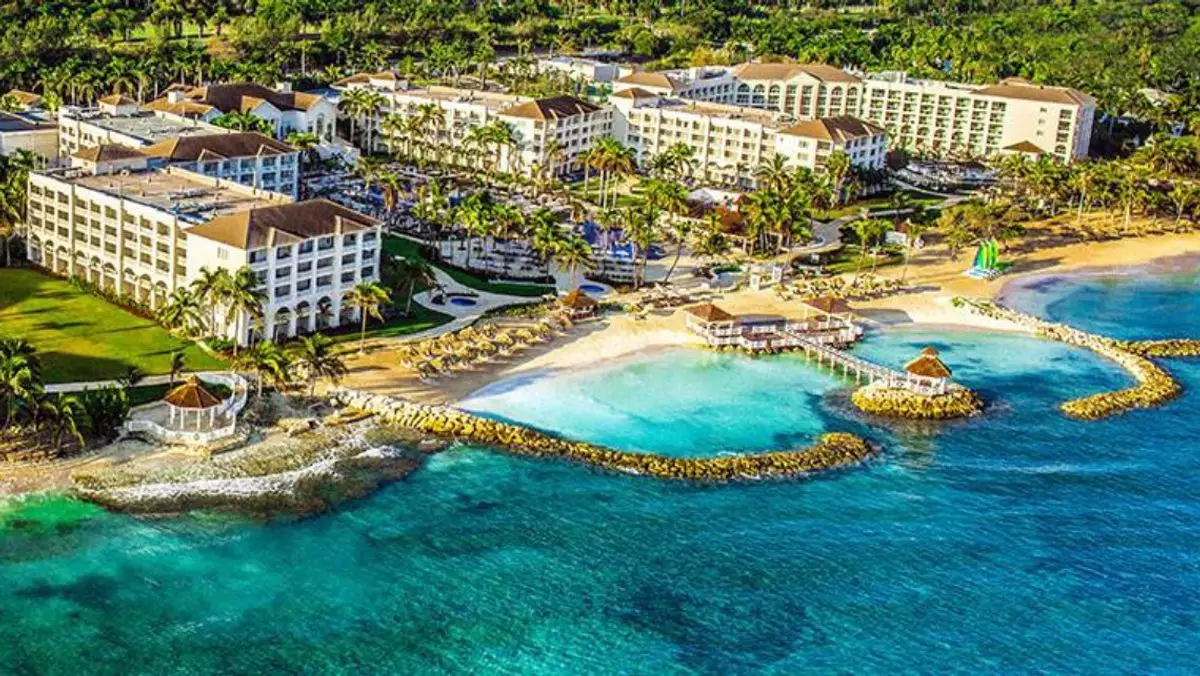Hyatt Hotels Corporation has solidified its position as a dominant player in the high-end all-inclusive sector, yet the company appears poised for further growth. The recent announcement of its plan to acquire Playa Hotels & Resorts for $2.6 billion underscores this ambition. By adding 24 Caribbean and Mexican all-inclusive resorts to its already extensive portfolio of more than 120 Inclusive Collection properties, Hyatt aims not merely to expand its reach but to enhance operational efficiencies within the travel sector.
The upcoming acquisition is not merely a numerical expansion of Hyatt’s holdings; it represents a strategic maneuver aimed at consolidating control over its all-inclusive brands, specifically the Hyatt Ziva and Hyatt Zilara properties. Patrick Scholes, director of lodging and leisure equity research at Truist Securities, points out that the deal enables Hyatt to secure long-term management agreements that have traditionally been under the purview of Playa. This shift allows Hyatt to navigate its management more effectively and eliminates a competitor that has previously managed these assets.
By removing Playa from the equation, Hyatt not only strengthens its own brand portfolio but also fortifies its market position against competitors. Scholes goes further, remarking that the acquisition allows Hyatt to learn from Playa’s existing operational standards and practices, potentially leading to enhanced service delivery across its resorts. This is vital as the hospitality sector becomes increasingly competitive and consumer expectations shift towards more seamless and high-quality experiences.
The financial strategy surrounding the acquisition involves a two-pronged approach towards asset management. Hyatt intends to sell off Playa’s owned real estate, targeting at least $2 billion in proceeds by the end of 2027. Should Hyatt manage to retain control over the management contracts tied to these sold properties, it stands to generate an estimated $20 million annually in management and franchise fees. Scholes emphasizes that the sale of these assets is more feasible for a larger corporation like Hyatt than it would be for Playa, which has historically struggled with asset liquidation.
This financial maneuvering highlights Hyatt’s strategic foresight. By converting its acquired assets into liquid capital, the company can continue to fuel its growth initiatives while maintaining a steady revenue stream through management contracts. This reflects an understanding that acquiring property is only the first step; translating those acquisitions into profitable operations is the ultimate goal.
Another significant aspect of the acquisition may lie in streamlining the previously fragmented booking process for travel advisors and consumers. The integration of Playa’s portfolio into Hyatt’s existing distribution channels could eliminate confusion surrounding the reservation processes. Travel agencies like Altitude Travel have expressed optimism regarding these changes, suggesting that it will simplify the booking experience for clients and reduce the complexity that previous arrangements created.
The collaboration with ALG Vacations as part of Hyatt’s distribution channels is particularly noteworthy. This might not only enhance booking efficiencies but could also lead to improved marketing strategies, thereby boosting overall sales for both Hyatt and travel advisors who rely on a cohesive booking system.
While all indicators might suggest that the acquisition is a move chalked full of potential benefits, industry analysts and insiders express caution regarding Hyatt’s rapid expansion. The company is undertaking several ambitious initiatives, including its swift move into the European market and a series of acquisitions that may stretch its operational capabilities. Abbey Meyer, CEO of Altitude Travel, aptly notes that while aggressive growth is powered by increasing demand for all-inclusive offerings, it may lead to operational strain if not managed effectively.
Yariv Ben-Ari, a co-chair at the hospitality real estate group of Herrick Feinstein, warns that Hyatt must not lose sight of the commitment it has made to its customer base through its loyalty programs. As the industry evolves, maintaining brand loyalty will be critical, and any missteps in service delivery resulting from rapid expansion could jeopardize Hyatt’s hard-earned reputation.
Hyatt’s acquisition of Playa Hotels & Resorts marks a significant chapter in its ongoing ascent within the all-inclusive sector. While it seeks to enhance its foothold through strategic asset management and streamlined operations, the execution will ultimately determine the success of this ambitious endeavor. On one hand, the potential for lucrative returns and improved booking processes offer exciting prospects; on the other, the risks inherent in rapid expansion warrant careful consideration. If Hyatt can successfully navigate these challenges, it may well solidify its dominance in a competitive landscape.


Leave a Reply